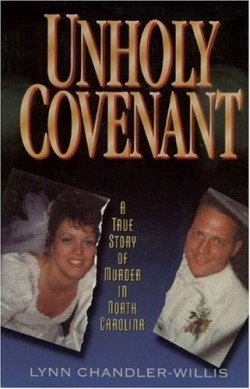Unholy Covenant
A True Story of Murder in North Carolina
A lovely young woman finally marries the man of her dreams, but less than two years later is found dead in the charred shell of her house in the small North Carolina town of Pleasant Garden. Compounding the tragedy, investigators discover her death was caused not by the fire, but by a bullet to the brain.
Here is the story of Patricia Kimble’s 1995 murder and the investigation that produces charges against her husband and brother-in-law, who quickly come under suspicion but elude arrest for eighteen months as police struggle to build a case that will stand up in court. They eventually conclude that Ted Kimble, a cocky, self-absorbed small businessman with an uncanny ability to manipulate others, bribed his slow-witted brother Ronnie to kill Patricia in hopes of reaping a lucrative insurance payoff. Compiling sufficient evidence to convince a jury proves no easy task until detectives are rewarded by the emergence of a key witness and a timely assist from none other than televangelist Jerry Falwell.
Chandler-Willis, herself a resident of Pleasant Garden, follows a well-traveled trail blazed by Truman Capote, whose 1965 masterpiece In Cold Blood is credited with inventing the literary genre known as the “nonfiction novel”—an amalgam of journalism and creative writing. The author gathers information about real-life events, particularly crimes, using standard reporting tools—interviewing police, studying court testimony—yet in relating the tale borrows techniques from the realm of fiction, such as recreating scenes in vivid detail without having been present and changing names to protect privacy. Purists decry the practice, and might reasonably wonder how Chandler-Willis could have known, for example, that on the morning of his arrest Ted Kimble was annoyed with his mother for failing to place his freshly laundered clothes in the proper drawers. Such quibbling aside, however, fans of true-crime stories will find this an engrossing, well-crafted account that builds to a satisfactory climax, rewarding the reader’s desire that justice be done.
Reviewed by
John Flesher
Disclosure: This article is not an endorsement, but a review. The publisher of this book provided free copies of the book to have their book reviewed by a professional reviewer. No fee was paid by the publisher for this review. Foreword Reviews only recommends books that we love. Foreword Magazine, Inc. is disclosing this in accordance with the Federal Trade Commission’s 16 CFR, Part 255.

